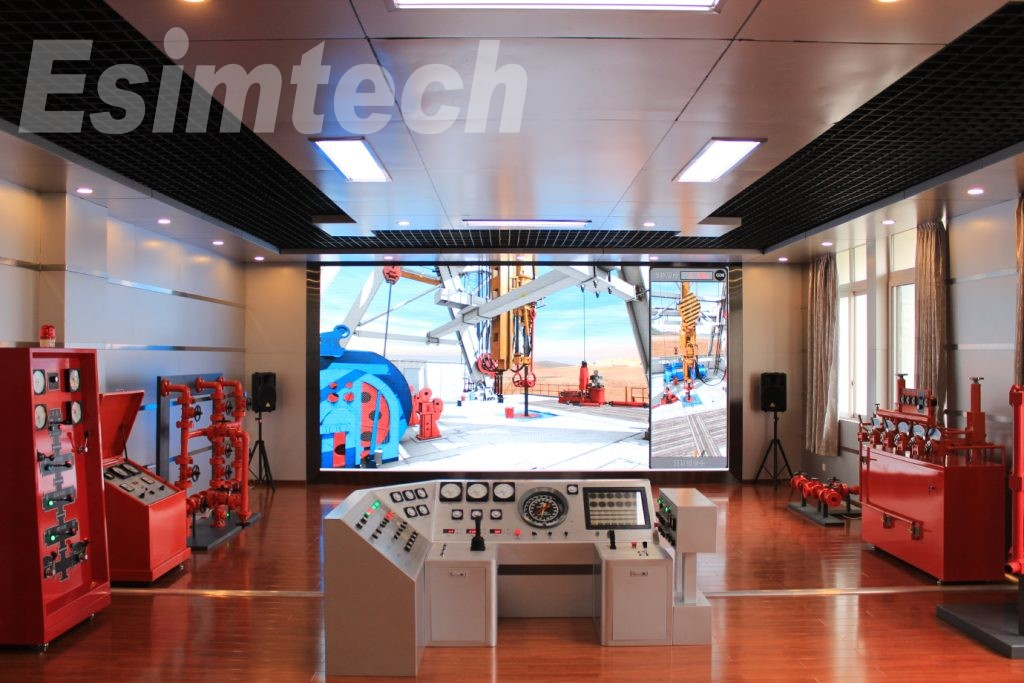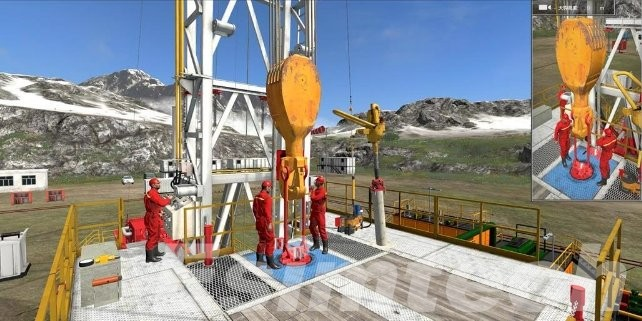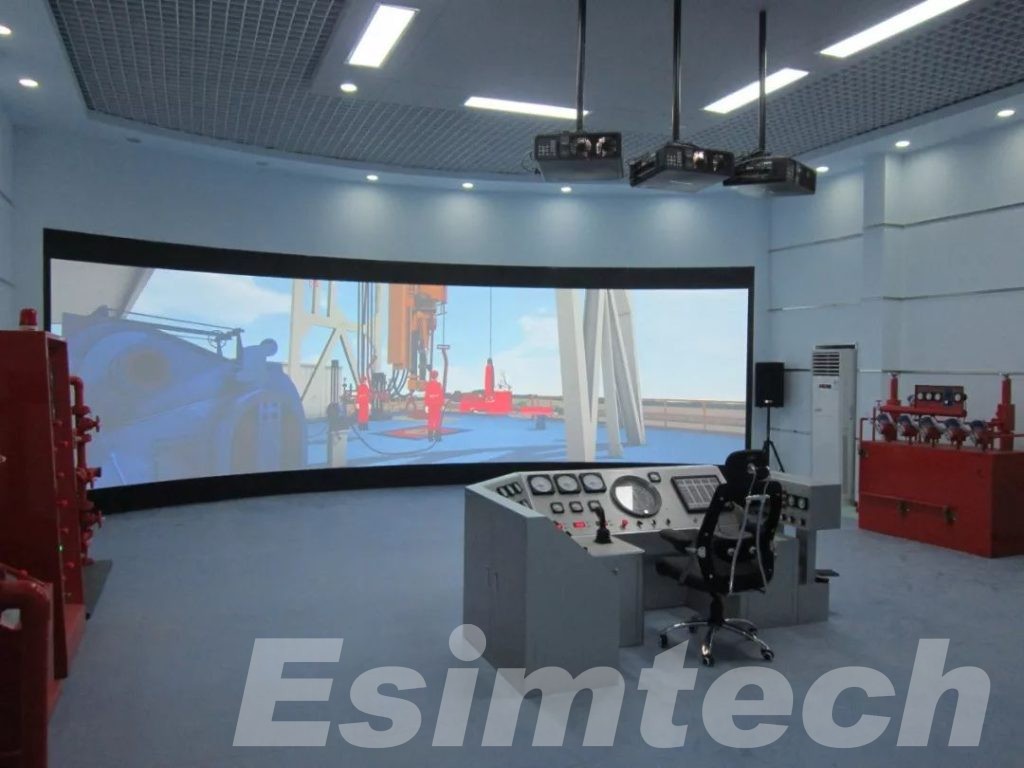What Are Petroleum Simulators
Petroleum simulators are valuable tools in the oil and gas industry because they enable organizations to simulate and model complicated geological, engineering, and operational scenarios that would be difficult or impossible to recreate in the real world.
The Importance Of Petroleum Simulators
With oil and gas simulators, engineers and operators can better understand the behavior of oil and gas reservoirs, predict production and refining outcomes, and optimize exploration and production activities by using simulation software. Petroleum simulators also assist in lowering exploration and production costs by identifying and minimizing potential hazards, increasing operational efficiency, and maximizing resource recovery. Furthermore, simulators can be used to test and develop new technologies and processes, resulting in increased industry innovation and competitiveness.

Types of Petroleum Simulators
Reservoir simulators, wellbore simulators, process simulators, integrated asset simulators, and so on are the most common forms of petroleum simulators. Each simulator has its own set of capabilities and applications.
Reservoir Simulators
Reservoir simulators are programs that simulate the behavior of oil and gas reservoirs. These simulators consider elements including rock characteristics, fluid properties, and fluid flow. Reservoir simulators are used to forecast reservoir performance, improve production strategies, and assess the effects of various production scenarios.
Reservoir simulators are very effective in assessing unconventional reservoirs like shale gas and tight oil deposits. These formations frequently have complex geology and reservoir characteristics that are challenging to adequately model. Reservoir simulators aid in the reduction of uncertainty and the optimization of drilling and completion operations.
Wellbore Simulators
The behavior of oil and gas wells is modeled using wellbore simulators. These simulators consider elements such as fluid generation, gas flow, and pressure variations. Wellbore simulators are used to increase production efficiency, optimize well design, and predict well performance.
Wellbore simulators are very effective for improving output from horizontal wells, which are often utilized in unconventional reservoirs. Because of their intricate geometries, these wells frequently require hydraulic fracturing to increase production. Wellbore simulators aid in the optimization of hydraulic fracturing operations and the increase of output rates.
Process Simulators
Modeling the behavior of refining processes is done using process simulators. These simulators account for things like distillation, cracking, and other chemical reactions. Process simulators are used in refineries to optimize operations, minimize energy usage, and increase product quality.
Process simulators are very useful for assessing the impact of feedstock composition changes on refining processes. Refineries frequently receive crude oil with changing compositions, and process simulators aid in optimizing refinery operations to account for feedstock composition fluctuations.

Integrated Asset Simulators
Reservoir, wellbore, and process modeling are all combined into a single model in integrated asset simulators. Companies can use these simulations to optimize the full value chain, from discovery to refining. Integrated asset simulators are used to increase resource recovery, reduce operational costs, and optimize production rates.
Integrated asset simulators are especially effective for assessing the impact of production decisions across the whole value chain. These simulators aid in the optimization of manufacturing and refining activities in order to increase profitability and resource recovery.
Benefits of Petroleum Simulators
1. Improving Reservoir Characterization
The potential of petroleum simulators to improve reservoir characterisation is one of its key advantages. Reservoir simulators can simulate the behavior of oil and gas reservoirs by taking parameters such as rock characteristics, fluid properties, and fluid flow into account. This helps to reduce uncertainty in reservoir characterisation and enhance reservoir performance predictions.
Improved reservoir characterization provides various advantages, including better resource estimation, more efficient drilling and completion operations, and lower risk in exploration and production activities.
2. Optimizing Production Rates
Production rates can also be optimized using petroleum simulators. Wellbore simulators can simulate the behavior of oil and gas wells by accounting for elements such as fluid output, gas flow, and pressure variations. This aids in optimizing well design, forecasting well performance, and increasing production efficiency.
Increased resource recovery, enhanced reservoir management, and lower operating costs are all advantages of optimizing production rates.

3. Reducing Operating Costs
Another advantage of petroleum simulators is that they can cut operating costs. Reservoir, wellbore, and process modeling can all be combined into a single model with integrated asset simulators. Companies may now optimize the full value chain, from discovery to refining. Integrated asset simulators can be used to increase resource recovery, reduce operating costs, and optimize production rates.
Reduced operating expenses have a variety of advantages, including increased profitability, reduced environmental impact, and increased safety.
4. Increasing Profitability
Finally, petroleum simulators can aid in profit growth. Economic simulators can simulate the economic aspects of oil and gas production, such as project costs, cash flow, and profitability. Economic simulators can be used to examine the financial sustainability of oil and gas projects as well as the influence of price fluctuations on project economics.
Profitability increases have various advantages, including improved financial performance, increased shareholder value, and enhanced flexibility to invest in future projects.

Summary
Petroleum simulators are an important tool in the oil and gas industry, enabling organizations to make more informed decisions, improve operational performance, increase profitability, and better understand complicated geological and technical scenarios.
